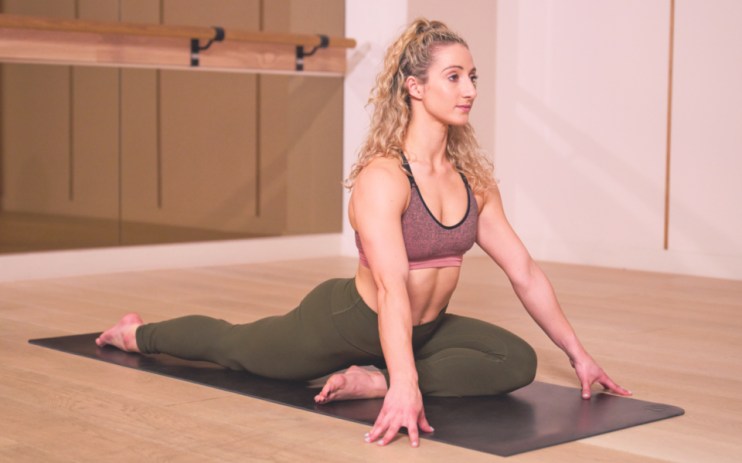Yoga and meditation could help you beat City stress

We would all like to live calm, anxiety-free lives, but that’s easier said than done. Working in the City is stressful, and that inevitably has an effect on our bodies as well as our minds.
It’s all about our nervous systems – back when we were cavemen, our flight and flight response would only kick in when we thought we were under threat. These days a stressful email or a looming deadline can cause our threat level to rise and stimulate the fight or flight response. As we don’t have anything to run away from, we just hold on to that tension.
The solution is to down-regulate the nervous system, which is where things like yoga, breath work and stretching come in.
For some people yoga classes can seem a little daunting. A common thing I hear is that ‘I’m not flexible enough to do yoga’, which is a bit like saying ‘I’m too dirty to have a bath’. You do yoga to become more flexible.
It’s also worth noting that there are all kinds of classes that come under the Mind & Body umbrella: dynamic styles, athletic styles, quieter practices like Yin Yoga where you hold passive postures for minutes at a time. There’s pilates, which is great for realigning the body, strengthening the core and working smaller muscles that might not be activated in a HIIT class or weights regime. And we have Barre classes that are dance inspired, which are great for building up flexibility and control, and as it’s set to music it’s a bit more upbeat than Pilates.
If somebody is brand new to these practices I recommend they start with something slower paced. In Third Space that might be our Hatha class, our Yin Yoga class, or our Hot Yoga class (the heat helps your body to relax and makes it easier to stretch).
It’s important to go into these classes with an open mind. Don’t expect to be an expert right away. If you went running for the first time you wouldn’t try to do a marathon, so don’t be discouraged if you’re not amazing at first. If you’re naturally quite coordinated or have done sports in the past you might pick it up very quickly but everyone moves at their own pace.
One of my friends was a professional rugby player and when he started yoga he was a typical big guy, really tight. He’s now a yoga teacher and he’s probably bendier than me. He leaned out a little but you can hold onto muscle mass and be flexible at the same time.
It’s important to think about training holistically – it’s not just about ‘do I look good’ and ‘can I lift a really heavy weight’ – you should also look after your mind and nervous system and try to incorporate recovery and mobility training.
There’s an element of “use it or lose it” with our bodies – as we get older we naturally lose mobility, which can make it harder to do the things we love. One of my yoga teachers had a client who was in his 60s – he wanted to ride his motorbike but he was really struggling to get his leg up and over the bike. Through doing yoga he learned how to get that range back and was able to start riding again.
You’ll also see improvements in other areas. For lifters, sometimes a limited range of motion can hold you back, so if you work on your flexibility you may find that you can lift heavier or squat deeper.
Then there’s meditation, which is also misunderstood. The biggest misconception is that the whole process must be completely chill and relaxing. I have a very busy mind so when I meditate it’s often a struggle to quieten my mind because there’s so many thoughts flying in and out. That’s why we have techniques like concentrating on our breath or using a mantra – anything to help us focus and switch off our cognitive mind a little.
People often don’t realise that meditate is not about the immediate sensation but the experience it brings to the rest of our lives. If you’re a stressed out person, when something stressful happens you might very quickly fly off the handle or give up or run away from a situation, reactions typically caused by our fight or flight response. Meditation allows us to downregulate the nervous system, tapping into the relaxation response, which can help widen the space between an event and our response, giving us time to choose our actions.
Psychologist and neurologist Viktor Frankl sums it up nicely: “Between stimulus and response there is a space. In that space is our power to choose our response. In our response lies our growth and our freedom.”
Over time it can make you happier, less stressed, less anxious and able to sleep better. So whether you’re an active gym-goer hoping to take your workout to the next level, someone at the start of your fitness journey, or you’re just searching for ways to be calmer and more relaxed, try some of these techniques. You’ll feel better and it’s also a great way of building a community outside of the people you work with.
• Clare is a Mind & Body Master Trainer at Third Space. All classes are included as part of a Third Space membership and there are over 400 Mind & Body classes a week across all Third Space locations. For more information go to thirdspace.london